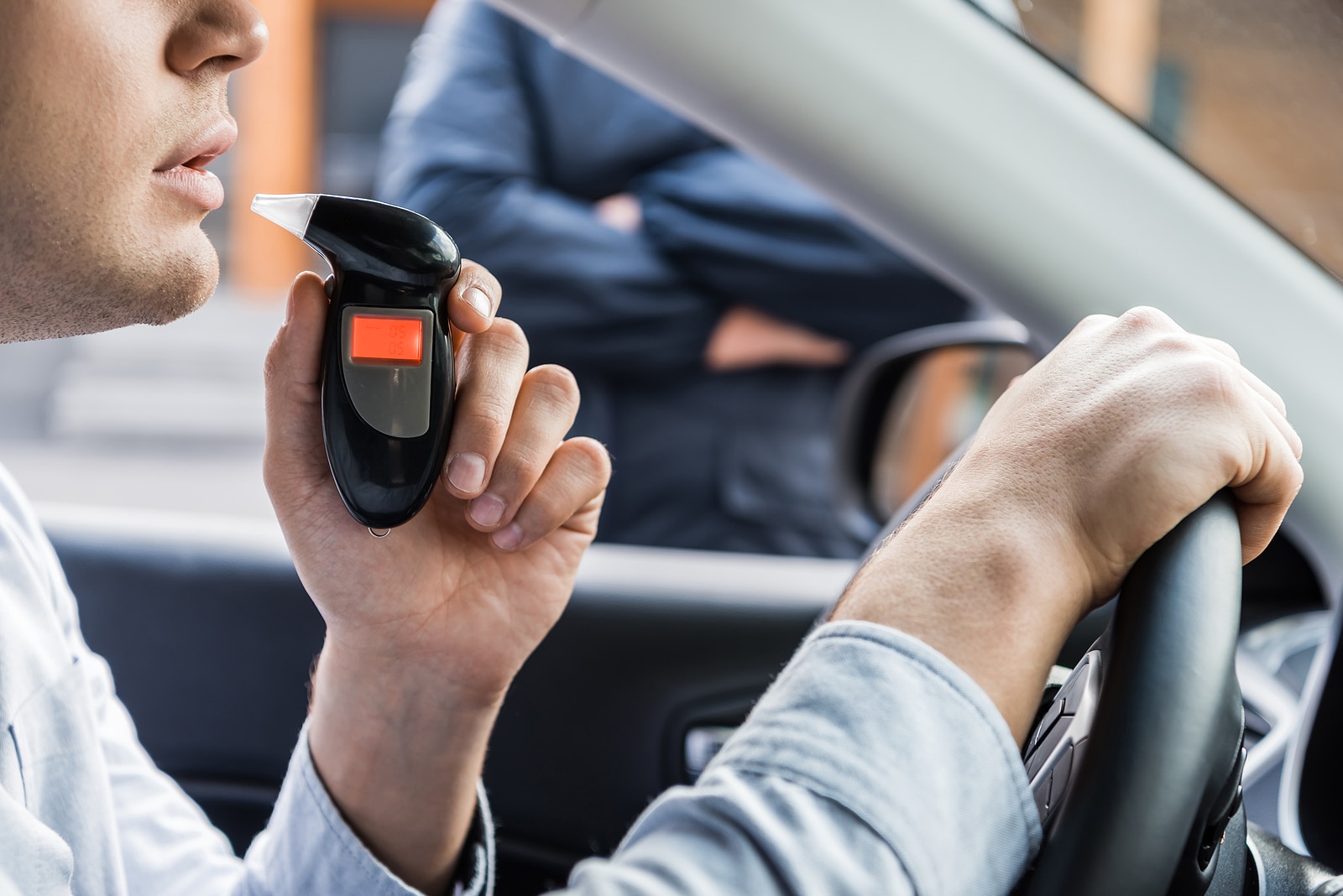I understand the law and how to speak to juries. There are plenty of attorneys who can adequately handle your case, but you need to find the attorney that is the right fit for your case. You ultimately want the best possible outcome, and I truly believe I’m the attorney that will get you that result. If you talk to a few different attorneys, you’ll probably start to see a pattern. There’s the attorney with the big firm who promises you the world then hands your case off to another attorney in their firm. Then there’s the attorney that does a little bit of everything but specializes in nothing. I can promise that you will be dealing directly with me throughout the entire process, and I won’t be handling divorces, bankruptcies, or drafting wills. I’ll be handling your case and others like it. That specialization and experience leads to better results. You’ll also have an open line of communication with me and receive prompt responses.
I have a strong understanding of the law as it pertains to drug charges. Ultimately, all the case law gravitates back to the 4th amendment to the United States Constitution establishing the reasonableness of searches and seizures. Citizens should not be randomly stopped and searched. There is sliding scale of protection based on the level of privacy you can expect. For example, you expect the most privacy in your own home and therefore have the greatest protections there. You have very little privacy expectation when you are walking around in public. Therefore, officers can approach you and speak to you based on a mere suspicion. You have a greater right to privacy in your automobile than you do on the side of the street, but less than you do in your own home. In an automobile, officers need a reasonable articulable suspicion to stop your vehicle. Mere suspicion is not enough in the context of an automobile.
Most searches of a home are the result of a search warrant. The search warrant must lay out particular facts that support probable cause to suspect that specific illegal items will be found at a specific location. The search warrant must be signed by a neutral judge before the officers can execute it. A search of a home can be suppressed based on insufficient facts to support the issuance of the search warrant in the first place. It could also be suppressed based on exceeding the bounds of what was specified in the search warrant. There are several potential legal defenses to any search warrant.
Most automobile searches fall under one of the exceptions to the search warrant requirement. Therefore, the first defense to an automobile search is that the officer had no basis for stopping the vehicle in the first place (no articulable facts that a crime was committed). If the officer cannot present specific, articulable facts to support the stop of your vehicle, then it doesn’t matter what was found during the subsequent search. It could be a dead body, and the case would still get dismissed because the officers illegally discovered the evidence of the crime.
If the legal defenses fail, then you still have factual defenses such as a lack of possession or a lack of intent. These issues must be raised at trial. It is much easier to prove a lack of possession when there are multiple people in the home or vehicle. A lack of intent could be important when charged with possessing large amounts of a drug. The prosecutor may try to argue that you had an intent to distribute, manufacture, sell etc. the drugs that were allegedly in your possession. That intent could be dispelled by an experienced attorney.
Of course, if you hire an attorney who is known to fight cases through both legal defenses and factual defenses at trial, then you are also going to get more favorable plea offers. If the prosecutor knows your attorney will pinpoint every deficiency with the case, then you are much more likely to get a favorable plea offer before the case is set for trial.
What Are The Most Common Drug Offense Charges In Georgia That You Handle?
The most common drug offense is possession. Of course, you can possess a variety of different drugs. Then, there’s a hierarchy based on the amount of a particular drug that could result in a charge for mere possession, possession with intent, or trafficking. Everyone’s not going to traffic massive amounts of drugs. So the most common cases are going to be the lower level possession cases with personal use amounts of a drug. You’re going to have more personal use cases than drug distributors, and even less drug traffickers.
Marijuana possession is still the most common charge in Georgia. Even though there has been a push to decriminalize it. As of right now, it is still illegal. In some places, you may just pay a small fine, but in some places, it is treated as harshly as any other kind of drug. Luckily, there are several ways to keep a possession case off your record. It could be through programs such as pretrial diversion or the use of conditional discharge or first offender which are procedural pleas that keep your record clean.
What Determines Whether A Drug Charge Falls Under Misdemeanor Or Felony Level In Georgia?
Marijuana is the only drug that has a misdemeanor level. Less than one ounce of marijuana is considered a misdemeanor amount. Anything greater than one ounce is a felony. Any amount of any other drug is deemed a felony. And so then, you’re going to be looking at the amount of the drug and the surrounding circumstances to determine whether it’s a possession case, a possession with intent or trafficking. You can also get a misdemeanor for prescription pills that are not in the original container. You read that right. That pill divider that your grandma uses for her daily medications would be deemed a misdemeanor offense if she were pulled over and caught with it. Other misdemeanor drug-related offenses include drug paraphernalia such as pipes or bongs.
According To The State Of Georgia, What Is Considered Possession, Sale, Distribution Or Intent To Distribute Unlawful Drugs?
Typically, the amount of the drug dictates whether you get charged with just possession or a more serious offense. So, your first issue is determining whether they can prove possession because even if it’s a possession with intent to distribute charge, they still must prove possession. They will try to prove possession by actual or constructive possession, either is legally sufficient. An example of actual possession would be you have the drugs in your pocket or on your person somehow. That would be a hard scenario to disprove, but maybe there’s an argument that you just borrowed your friend’s jacket. There’s always a defense, but the closer the drugs are to your body, the stronger the case for possession. Now, if the drugs are in your car, that would be an argument for constructive possession. If the drugs are in the trunk of your car and you’re the only one in the car, that would be decent argument for constructive possession. If the drugs are in your bag, but you’re not actually holding it, that could still be constructive possession because they can argue based on circumstantial evidence that you are the owner of those drugs. If the drugs are in a bag, it is certainly a lot easier to prove they aren’t your drugs if the bag doesn’t have your name on it. If the drugs are in an unmarked bag sitting near you, that would be a lot harder for the prosecution to prove, especially if there are other people near you. They would have to prove constructive possession based on the surrounding circumstances.
The most common charge outside of just possession would be possession with intent to distribute and that is inferred from the circumstantial evidence like you have scales, large quantities of money, baggies, those types of things. That would go towards proving the intent aspect of the charge.
Is There Any Alternative Sentencing Or Drug Court Programs Available For Drug Offenders In Henry County? And If So, Who Might Be Eligible?
Yes, there are several options. For first-time offenders, we can keep the charge off your record through the pre-trial diversion program. We could also enter a conditional guilty plea under either first offender or conditional discharge. If you successfully completed probation, then the charge would be sealed from your record. Then there’s drug court for repeat offenders. Drug court is for people who have 2-3 drug charges and have not completed a similar treatment program in the past. If you continue to use drugs and fail treatment, then you will be deemed ineligible for future treatment programs and subjected to harsh prison sentences. Admittedly, it’s not a perfect system. Drug addiction is a disease. Typically, repeat offenders who have failed previous treatment programs need a strong support system that can finance private treatment programs to show the judge that the person has turned their life around.
In short, there is always a way to keep a first lifetime drug offense off your record. Your second and third offenses could be kept off your record under the right circumstances. But you have to know that successfully resolving a repeat offender drug case will take a lot of work by both the client and the attorney.
You also need to be local. You can’t do drug court in one county and live two hours away because there’s too many physical appearances that are necessary and all of these things make it difficult to monitor you intensively if you’re not local. Also, if you have a history of violent offenses or sexual deviancy, you’re probably not going to get into drug court. Sometimes even theft charges will exclude you, but especially violence or sexual offenses. So, there are standards and requirements for the program that an attorney can help you navigate to get accepted into the program.
For more information on Drug Charges In Georgia, an initial consultation is your next best step. Get the information and legal answers you are seeking by calling 470-206-2169 today.

 470-206-2169
470-206-2169





